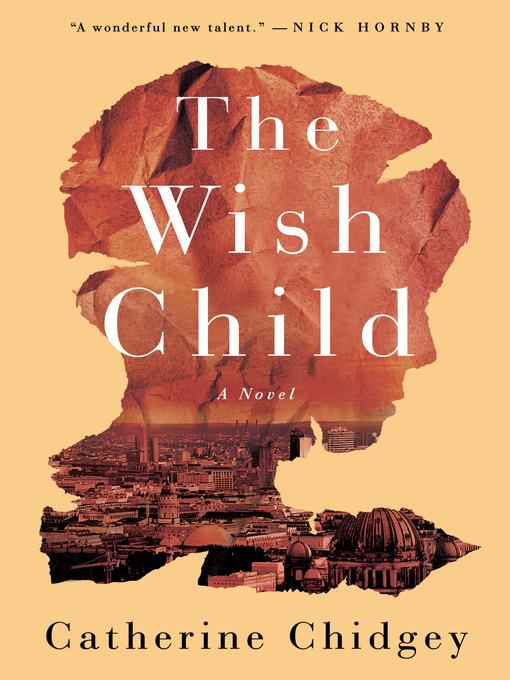
The Wish Child
A Novel
کتاب های مرتبط
- اطلاعات
- نقد و بررسی
- دیدگاه کاربران
نقد و بررسی

Starred review from August 1, 2018
The spectral voice of a wistful, mysterious narrator conveys not only the plot, but also the elegiac tone of this chronicle of the acute and lingering damages wrought by blind adherence to ideology.Chidgey (The Transformation, 2006, etc.), winner of New Zealand's Acorn Foundation Fiction prize for this work, slowly unspools the parallel stories of two children growing up in Germany as Hitler's wartime grip becomes a stranglehold. Siggi is the daughter of a comfortable middle-class family in Berlin. Her father works as a government censor redacting words like "freedom" and "defeat" from books and newspapers. "I make things safe," he tells young Siggi. Erich, a dreamy child with the perfect "German face," is being raised on a farm near Leipzig by nationalistic parents who censor their family's past. As war's relentless devastation mounts in both children's homes, their worlds become increasingly more surreal, and an element of magical realism surrounds their stories. Their lives briefly entwine during the war in an intense struggle for survival, but they are soon traumatically separated. In adult life, Siggi searches for clues to Erich's post-Cold War whereabouts, while her career as a "puzzler"--a specialist responsible for restoring documents destroyed by the Stasi before the fall of the Berlin Wall--inversely echoes her father's wartime responsibilities. Chidgey's understated and poetic revelations of the banalities of day-to-day life under siege, as the German war effort fails, communicate the corrosive horrors of war with an unrelenting catalog of loss and diminution, leavened only by an occasional dialogue between two hausfraus--fraus Müller and Miller-- who vie for moral superiority while spouting malapropisms and vapid, occasionally appalling, protestations of loyalty.Chidgey's controlled revelation of the identity of her shadowy narrator gradually illuminates the true horrors endured by the rest of the characters in this devastating work.
COPYRIGHT(2018) Kirkus Reviews, ALL RIGHTS RESERVED.

August 20, 2018
This inventive historical from Chidgey (The Strength of the Sun) begins in 1995 with elderly Sieglinde, who goes by “Siggi,” working on a puzzle: reconstructing stories from the lives of Germans during WWII through letters intercepted by the Nazis. In doing so, she begins to recollect her life in 1939 Berlin, where her middle-class family toes the Nazi line under the direction of her father, a government censor. Back then, on a farm near Leipzig, young Erich Kröning is growing up with less privilege but a great sense of peace as he spends his days tending to bees. Firmly entrenched in Nazi ideology, both families believe the Führer has their best interests in mind despite the escalating war. As the war rages on, the Allied forces close in, and Siggi and Erich are forced into the center of Berlin. Meeting in the bombarded city, they must work together if they hope to survive and set up camp in an abandoned theater. The story is told through multiple viewpoints, with one perspective, “the wish child,” hovering omnisciently over Siggi and Erich’s journey and propelling the story—and Germany as a whole—toward closure after the horrific war. Although the narrative-switching creates a distance, the contrast of voices provides a detailed portrait of Siggi and Erich’s fractured lives. Fans of The Book Thief will enjoy Chidgey’s delicate and elegant novel.

Starred review from September 1, 2018
Fiction based on fact can bring to life a place and time as no mere history can?in this case, Germany from 1939 to 1997, concentrating on the war years. Chidgey follows the lives of two couples and their families, Emilie and Cristoph Kroning on a farm near Leipzig, and Brigette and Gottlieb Heilmann with children Sieglinde, Jurgen, and Kurt in Berlin. In 1939, the Kronings successfully petition the government for the mercy killing of their severely disabled son; later, they adopt a Polish orphan, Erich, who is found to have the perfect German face. While Cristoph goes off to war, Gottlieb works as a government censor, razoring out prohibited words as the government gradually takes, first, material goods and then less-tangible but equally dear things from its people. In chorus-like fashion, dialogue between the Fraus Miller and Muller (one of them always right, the other never wrong) chronicles the breakdown of German society. The narrator who watches it all is the wish child, whose identity is finally made clear. Prizewinning New Zealand author Chidgey (The Strength of the Sun, 2002) lived in Germany for three years (where Margaret Atwood also lived while writing The Handmaid's Tale). This beautifully written, vivid picture of one of the darkest times in human history, already an international best-seller, also may serve as a cautionary tale for today.(Reprinted with permission of Booklist, copyright 2018, American Library Association.)

























دیدگاه کاربران